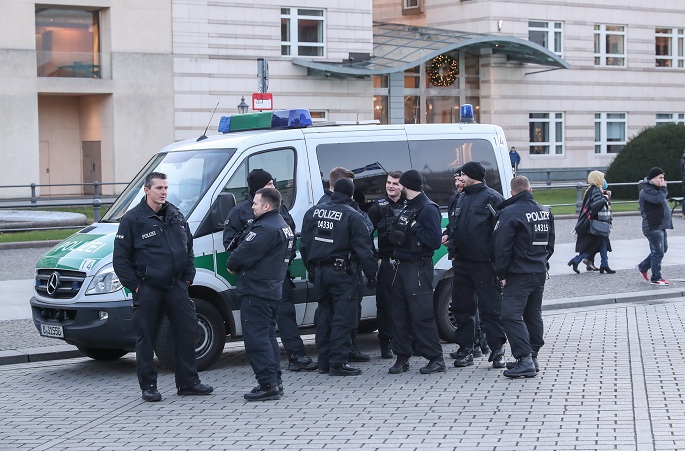Germany needs better preventive measures against refugee violence: study
Published : 04 Jan 2018, 00:01
German policymakers must adopt more effective preventive measures to reduce the number of asylum seekers who commit violent crimes, a criminological study published on Wednesday by the Federal Ministry for Family Affairs finds.
Amongst others, the paper calls for better availability of language courses, sporting activities and internships, as well as enhanced care for young refugees. Such services were needed prevent migrants who had no realistic chance of securing asylum in Germany in particular from becoming violent as a consequence.
Christian Pfeiffer, the lead study author and former justice minister in the state of Lower Saxony, highlighted the fact that German crime statistics had demonstrated an overall rise in violent crime during the past two years. Exploring more detailed evidence from the state of Lower Saxony as a case study, he identified a causal link between the mass arrival of refugees and the regional manifestation of this larger trend.
According to Pfeiffer, the number of violent crime incidents reported to police in Lower Saxony rose by 10.4 percent between 2014 and 2016. Asylum seekers were responsible for 92.1 percent of this increase, a circumstance that was not entirely surprising given the large share of young men in this demographic group. Statistically, men between the ages of 15 and 30 are likelier to commit violent crimes than the general population.
Nevertheless, the study also finds that one third of the victims of refugee violence are other refugees.
The researchers noted that, for a range of reasons, violent crimes committed by refugees are reported more than twice as often as those committed by native Germans. Furthermore, the accommodation of refugees with various religious and ethnic backgrounds in crowded centers was likely to be conducive to spontaneous outbreaks of violence. Refugees' proclivity for violence was also partially due to the circumstance that they tended to live in groups comprised only of men.
"The lack of women always has a negative impact," Pfeifer wrote. As a result, young men were more likely to base their behavior on "norms of manliness which legitimized violence." The ex-justice minister argued that granting refugees right to family re-unification was hence a sensible policy.
Another key finding of the study was that individuals who had a better chance of securing the right to remain in Germany were significantly less likely to commit violent crimes. Crime statistics from Lower Saxony showed large corresponding differences between national groups.
Accordingly, individuals from Syria, Iraq and Afghanistan, who are more often successful in securing asylum, were responsible for a much smaller number of violent crimes compared to those from Morocco, Algeria and Tunisia. For example, Tunisians only made up 0.9 percent of registered asylum seekers in Lower Saxony in 2016, but accounted for 17.1 percent of suspects in violent crime incidents during the same year.
The authors therefore advocated in favor of drafting a new national immigration law which established clearly under which conditions foreigners could achieve German citizenship. "This will create a strong incentive (for migrants) to strive towards fulfilling the requirements of immigration", the paper read.
In turn, migrants who had failed to obtain the right to remain in Germany should receive more government support from Berlin to start a new life in their country of origin.
New coalition negotiations hereby marked a good opportunity to adopt a "new perspective in refugee policy" and invest "huge amounts of money" in a return program for failed asylum seekers, Pfeifer told the public broadcaster "ZDF".
While the former Justice Minister expressed the view that Germany could not simply open its doors to anyone in need, he called for more developmental aid to fund projects in regions such North Africa.
Pfeifer warned, however, these measures would only be viable as long as the European Union (EU) managed to successfully secure its external borders. "It is burdensome to let everyone in, only to subsequently have to return them to their home countries again," he argued.


